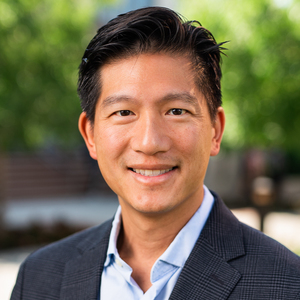This is the second installation of our two part series on pursuing grad school in theology.
What’s the difference between a British vs. American philosophy of education?
In Britain, they have a pre-professional mentality. Thus, grad degrees are considered bad, because you should’ve learned your trade as an undergrad. If you are doing a grad degree, it means you did poorly as an undergrad.
In America, it’s just the opposite. The more degrees, the better. That’s because we have a concept of “liberal arts” as undergrads—you can study anything, and do anything else later on in life; your major has no necessary correlation with your future job. So it’s almost like Americans have to go on to grad school in order to learn their trade.
Also, in Britain, they consider education to be a right. In America, we consider it a privilege. So for us, we think it’s alright to pay $35,000 per year for an undergrad education, whereas in Britain, they complain if they have to pay “top-up fees” which, last time I checked, was £3000 (about $5000).
They were protesting because £3000 was more than they ever had to pay before in their lives! All us American students looked at them complaining, and just shook our heads in disbelief.
The Difference between British & American degrees
British degrees are much shorter than American ones. Three years for an undergrad degree as opposed to four. One year for a Masters instead of two. Three years for a Ph.D. instead of seven.
An American Ph.D. in Theology will require you to learn French & German (even if they have nothing to do with your thesis topic), take two years of classes before even starting your dissertation, take a series of comprehensive exams, T.A. classes, and then when you are ABD (“All But Dissertation”), then you can finally work on that beast.
In Britain, you start off your degree as ABD! You can start writing that dissertation the day you start your program. The two requirements are so different from each other, it’s almost like they shouldn’t both be called Ph.D.’s. The American Ph.D. definitely has more worldwide acceptance, unless you do your Ph.D. at a top-flight British university.
Why should you go to an American degree program, then, if the British one is so much shorter?
Well, if you go to a major research university, your degree is free. Not only do you not have to pay tuition, but you get a stipend on top of that. Why? Because you are essentially an employee of the university, working as a T.A.
But, notice: this makes it all the harder to get into an American Ph.D. program. It’s so competitive, because it’s free. You have a much better chance of being accepted into a British program.
Why you should not get a British degree
Depends how good you are with independence. Someone once likened a British degree to being parachuted into the middle of a dark forest and you’re expected to find your way out. If you want guidance, do an American Ph.D. Your British supervisor will not be of much assistance.
Also, the job market: if you apply for a teaching post, all other things being equal, the person with an American Ph.D. will get the job over you. In other words, if you come armed with a British Ph.D. (say, from Oxford), and someone is applying for the same job (with a Ph.D. from, say, Harvard), and you two have the same amount of publications and the same everything, they will hire the Harvard person because they’ll say, “He or she has more teaching experience than you, more languages than you, and overall did a more rigorous Ph.D. than you.”
And the hiring committee would be correct. Really, though America’s secondary system of education stinks, there’s no system of higher education in the world better than what the U.S. has to offer. American universities are the richest, strongest, and best in the world, in terms of research, teaching, and resources.
Why you should get a British degree
International exposure. You become a much better “world” scholar, and not just a narrow-minded parochial American scholar. That being said, unfortunately your international perspective is not very quantifiable, so even though it makes you a well-rounded person, it doesn’t necessarily help your CV.
Freedom & independence. You can run on your own without having your supervisor hold your hand all the way or keep you on a short leash.
The ability to write as a Christian. Even though Britain is only nominally Christian, they have no separation of church & state so everyone still thinks of themselves as Christian. Therefore you can write a Christian dissertation from a faith perspective without getting your hand slapped. It’s much harder to get away with that in an American secular university.
Also, you may think, I don’t want to pay three years of tuition when I can get a free American program! But think about it this way: opportunity costs.
If you can get done with your British Ph.D. in three years, you have four more years to generate full-time income, before your American friend even finishes his or her program! And meanwhile they’re making pennies as a grad student (it’s a small stipend for which they’re busting their rear).
Also, if you plan on teaching in a Christian university/seminary, for some reason they love British Ph.D.’s. If you are planning on teaching in a secular school, stick with the American Ph.D.
What can you study in seminary?
There are about ten subjects:
- New Testament
- Old Testament
- Systematic Theology
- Church History
- Ethics
- Christian Education
- Counseling
- Spiritual Formation
- Homiletics
- Missions & Evangelism
Unfortunately, there is a platonic, dualistic relegation to “lower” status of the “practical” subjects as opposed to the “academic” subjects. The first half of the list are “academic” subjects and the last half are “practical.” This is unfortunate, because 1) there should not be a dichotomy, and 2) seminaries exist to train people for practical ministry!
Yet the dichotomy exists. Someone once told me that the subject I study, missiology, is one of the “poor boy” subjects of seminary studies. This shows the unfortunate hierarchical mindset prevalent in seminary studies.
What implications does this have on what to study?
Here are the cold hard facts: Ph.D. programs crank out graduates in numbers far exceeding the number of jobs that are available. As such, you have to play the numbers game.
Every seminary needs at least one professor in each of the above subjects. If you go for one of the “academic” subjects, your chances of getting a job are greatly decreased due to the competition.
Why make life harder on yourself? The worst of them all is New Testament. The field is so saturated that you will be fighting against literally hundreds of candidates for each professor position that you apply for.
Old Testament is slightly better (people are daunted by the fact that you not only have to learn Hebrew, but also related Ancient Near Eastern languages like Ugaritic, Akkadian, Syriac, Coptic, etc.—in NT studies, you just have to know Greek), but still not easy.
But go get a Ph.D. in homiletics, and seminaries will be beating down your door to hire you, because you’d be a rare commodity.
How to choose a dissertation topic
Your Ph.D. topic must be an original contribution to knowledge. I remember having a conversation with one of my fellow classmates in grad school, and we tongue-in-cheek came up with this list of how to choose the “easiest dissertation topic.” Though this list is not meant to be totally taken seriously, it has enough truth in it to be instructive nonetheless:
1. Pick a person to write on, not a topic.
Topics are WAY too broad. Picking a person will keep it narrow, and specificity and narrow scope are a huge key to a successful doctoral dissertation topic. Also, don’t compare two people; that will only double your work load. Just pick one and stick with him/her.
2. Pick a person who has not been written on much.
Forget writing on Barth or Calvin, because you will have to read every single dissertation ever written on them, in order to come up with an original contribution to knowledge that hasn’t been touched on before. That being said, don’t pick someone so obscure that nobody cares. They must have some significance.
3. Pick a person who has not written much.
Again, avoid people like Barth (do you really want to read all of the Church Dogmatics?), or Aquinas (hello, Summa Theologica!). I’m not saying that you have to pick someone who has written only two books, because that will not be taken seriously, but you don’t have to unnecessarily swamp yourself. Don’t spend all your time reading and forget that you still have to write.
4. Pick a person who has not written in a foreign language.
Or at least not a difficult foreign language! Spanish, French, fine. Don’t choose someone who has written extensively in Sanskrit or Arabic or Chinese (unless you already know those languages)!
Advice for finishing your dissertation
My Ph.D. supervisor gave me two wise words of advice:
1. Your dissertation is not your magnum opus. It is a credential for joining the guild of scholars, similar to how a lawyer needs to pass their bar exam. Just get the thing done so that you can join the academy, and then write your magnum opus later!
2. There are two kinds of dissertations: the perfect dissertation; and the finished dissertation. Again, just get it done.
I hope this “insider” information helps in guiding you toward a potential Ph.D. in Theology and whether or not you go the British vs. American route.
P.S. Here are some differences in U.K. vs. U.S. terminology (after all, we are two countries divided by a common language!):
-In America, “doctor” is higher than “professor,” because the former implies that you have a Ph.D. In Britain, it’s just the opposite—“doctor” means you merely have a Ph.D., whereas “professor” means you have tenure and/or an endowed chair. Don’t call a British professor “doctor” otherwise it’s considered highly insulting!
-In America, we call a Masters research work a “thesis,” and a Ph.D. research work a “dissertation.” In Britain, the Ph.D. research is called “thesis.”
Considering graduate school? Schedule an appointment with Career Development in Handshake today.
 Biola University
Biola University


.jpg)
.jpg)